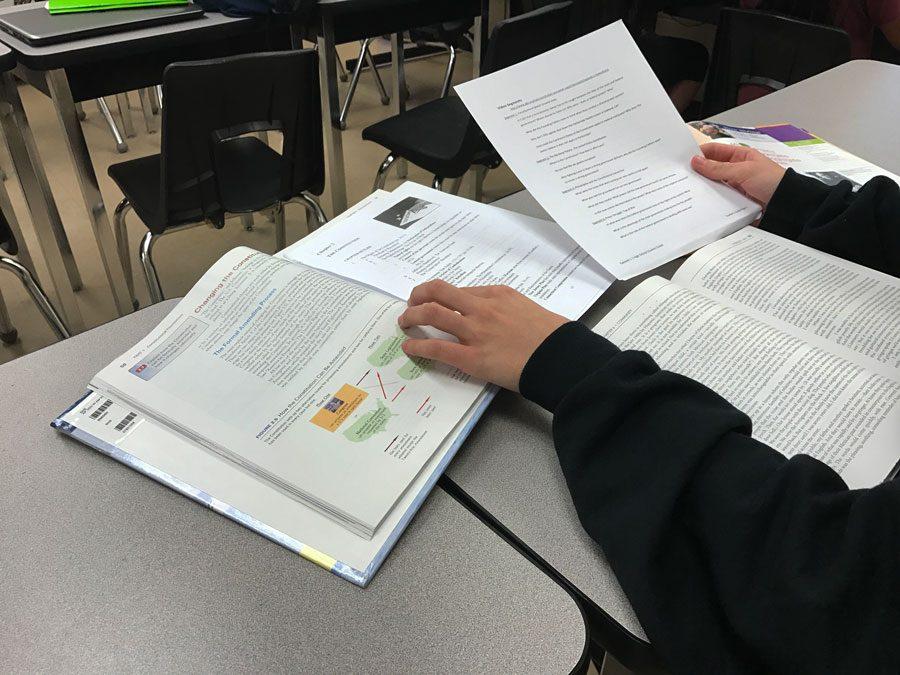STRESS IMPACTS STUDENTS’ ACADEMIC PERFORMANCE
February 1, 2017
Although stress can be both positive and negative, it has the ability to hinder students’ effectiveness in school. Stress may vary between individuals, but all stress can result in insufficient grades, as well as changes in the behaviors and attitudes of students. By using methods such as yoga and meditating in the classroom, teachers can help reduce the amount of stress placed on students.
The Academy of Health Careers offers a variety of certifications, all of which require one or more written exams at the end of senior year. Health Academy juniors have to take the Infection Control test in order to attend, which count as test grades. In addition, all Health students are necessitated to memorize an assortment of word parts and abbreviations, which are part of the Language of Medicine (LOM) portion of the program.
“The Health Academy workload can be extensive at times. Finishing assignments and also studying can be difficult, especially if you’re in additional clubs and sports,” said senior Ruth Nguyen. “Memorizing medical terminology is one of the toughest subjects required in Health Academy.”
In addition to rigorous coursework, the International Baccalaureate program entails other assessments mandated by the curriculum. Students are obligated to write the extended essay, a 4000 word paper, as well as a total of six subject exams prior to receiving their diploma.
“IB is so stressful because of the high academic course load and the various papers we are forced to write, such as internal assessments and extended essays,” said senior Matthew Duazo.
Stress is often described as a feeling of being overwhelmed, excessively worried, and uncomfortably anxious. With competition increasing between students, the average workload is accumulating at an accelerating rate. A study by New York University reports that 48 percent of students complete about three hours of homework a day, which causes 49 percent of student to encounter stress on a daily basis.
“It’s hard to balance school work, social life, after school activities, and sleep,” said junior Alicia Garcia. “Having a heavy workload in one class is detrimental to the other classes because you are spending all that time and effort on that one class.”
Disproportionate amounts of stress can negatively affect the mental health of students. Chronic stress can develop in students who have experienced stress over a long period of time, which if left untreated, can lead to health problems such as, anxiety, insomnia, muscle pain, high blood pressure, and a fragile immune system.
However, there are many things teachers can do In order to decrease students’ stress levels. Meditation is a simple, inexpensive mental and physical exercise that teachers can implement in the classroom.
“In my classroom, I practice yoga. I teach them breathing techniques to calm themselves down. We practice them together in the middle of block days to stay awake,” said math teacher Tisha Futrell. “Also, I tell them to look at one thing at a time. During tests, I tell my kids to take a piece of paper and look at one question at a time and do the ones you know first.”
The influence of stress are significant in high school students, which can cause poor grades. Using meditation and yoga in class, teachers can help decrease stress levels.























